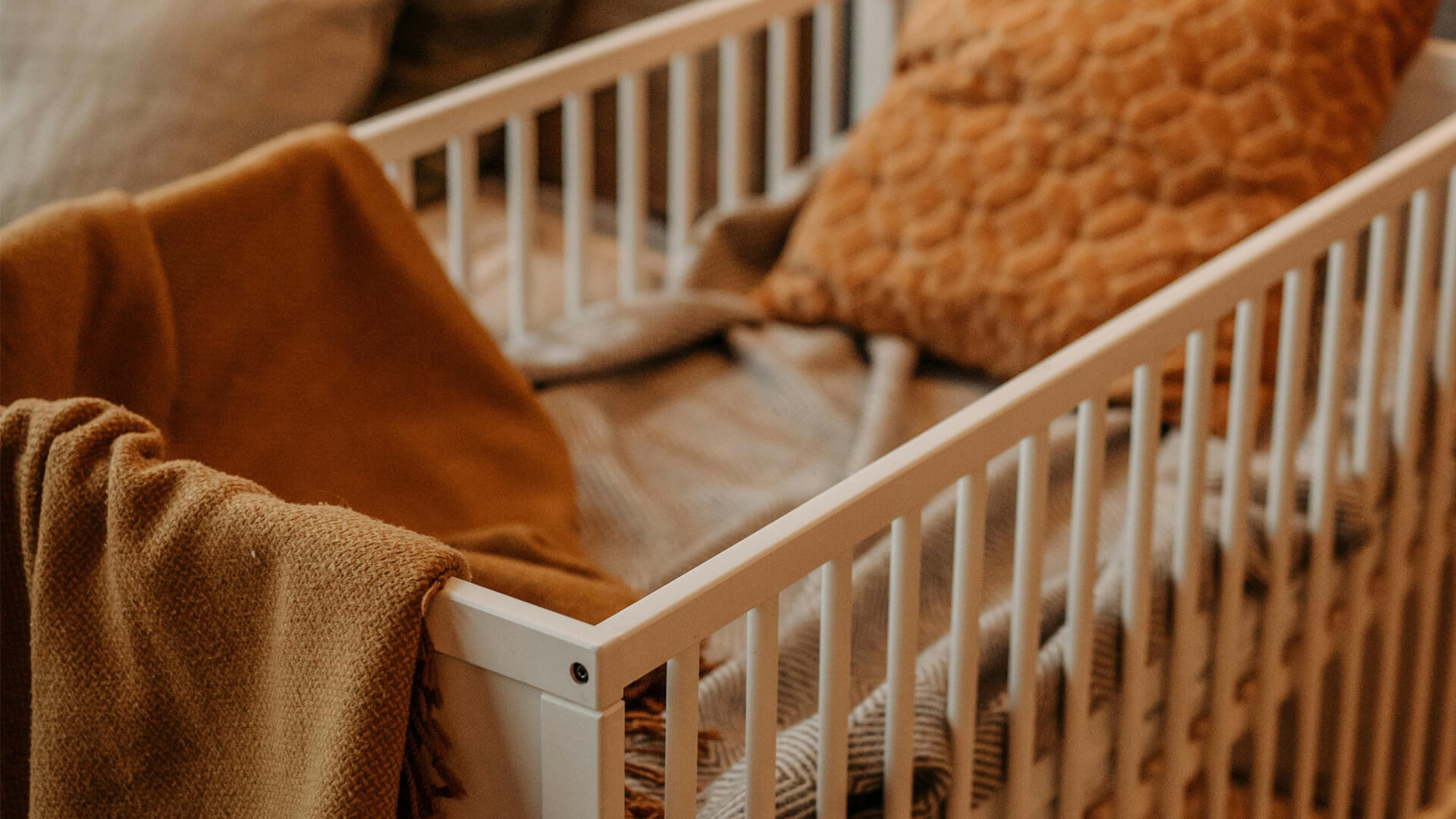
For you created my inmost being;
you knit me together in my mother’s womb.
I praise you because I am fearfully and wonderfully made;
your works are wonderful,
I know that full well.
My frame was not hidden from you
when I was made in the secret place,
when I was woven together in the depths of the earth.
Your eyes saw my unformed body;
all the days ordained for me were written in your book
before one of them came to be.
For many, Psalm 139:13–16 is a beautiful passage that gives hope to parents who are expecting a baby or holding one in their arms.
Every birth is a wondrous miracle, and when that sweet little one is linked to you forever, you experience an awesome emotion that never goes away, not even after the baby grows up and becomes independent.
But if your child has—or will be born with—special needs or congenital issues, you might be confronted with thoughts and questions like . . .
- How can I make sense of the phrase “fearfully and wonderfully made” (v. 14)?
- Has God really seen the unformed substance of my baby, born with the Trisomy 21 syndrome, cerebral palsy, without limbs, or without the ability to see or hear?
- In the face of such human imperfections, how can I still behold the “miracle” of my baby?
- If I learn during pregnancy that my child is likely to be born with special needs, should I choose to keep the baby? Or, if I find out my baby’s special needs only upon birth—after months of joy, hope, and expectation—how am I to respond?
Wrestling with the Why’s and How’s
Psalm 139 calls us to press on, to hang on, and to trust God for the journey ahead, for ourselves as well as for our children.
But surely, we will wrestle with the why’s and how’s of our baby’s condition.
We might be filled with guilt, wondering if we had done something wrong to cause it.
Or, we might shake our fists at God, blaming Him for allowing this to happen. After all, He had seen the unformed substance of our baby. So why is He being so unfair to our child?
We might also be overwhelmed by anxiety and worry, as congenital issues do not occur alone—our baby may struggle with a host of other health problems, or may have to undergo one surgical procedure after another.To walk through this journey fraught with challenges, we need hope. And that’s where we have to ask ourselves: “Where does our hope lie?”
When Dara Fell Sick
When Dara, our second daughter, was 14 months old, she fell sick and slipped into a coma that lasted three months.
She had many brain scans done, each one looking worse than the last. The doctors gave her a very bleak prognosis—that she would probably spend the rest of her life in a vegetative state.
It was a dark and uncertain period for us, but one hope pulled us through: we believed that God was in control—that He knew what He was doing, even if the medical team did not seem to. We held on to this truth about God, which gave us hope and strength not to give up on her.
It was a dark and uncertain period for us, but one hope pulled us through: we believed that God was in control.
As Dara was only a baby then, the doctors allowed me to remain at her side throughout her stay. Spending day after day in the hospital, without any idea how long it was going to go on for, was most depressing and wearisome.
We saw other children being warded for treatment, then leaving to go home. Child after child left, but we stayed on. The days stretched into weeks, then into months, with the outcome remaining uncertain as the doctors changed one course of treatment for another.
As I hung onto God and onto all He had promised, I looked to the Bible for help.
Who is Our God?
Psalm 146:5 tells us: “How blessed are those whose help is the God of Jacob, whose hope is in the LORD their God.”
Our hope is only as good as the One we have placed our hope in.
The greatness of our faith depends on the greatness of the One in whom our faith is placed. Similarly, our hope is only as good as the One we have placed our hope in.
So, when life looks hopeless, we can look to God—whom we have faith and hope in. God’s Word reveals these truths about Him:
- God made the heavens and the earth, and He made man (Isaiah 42:5)
- God is sovereign over all of creation, including our lives and all that happens to us (1 Chronicles 29:11–12)
- God loves us and He is faithful (Lamentations 3:22–24)
- God is our help and our strength (Isaiah 41:10)
- Nothing is too hard for God (Job 5:8–9)
- God’s grace is sufficient for our circumstances (2 Corinthians 12:9)
- God is never late (Habakkuk 2:3)
Our Hope in Him Changes Us
Knowing that God is my help and strength, and that He loves and is faithful to me, comforted me greatly when Dara first fell sick. I knew that I was not alone, for I sensed His presence each day.
Whenever the situation looked bad, like when a fresh brain scan showed further damage, the truths about God’s sovereignty and almighty power would reassure me of my hope in Him, and helped me to lean more deeply into God for strength even as we sought healing for Dara.
At times, when I felt like I was at the end of my tether, God’s grace would pull me through. And, I learnt to trust His perfect timing.
When I look back on this period, I realised that these truths about God were the best anchor in our storm. They enabled me to be totally present for Dara—in the meetings we had with the medical team, in learning from the nurses how to monitor her situation, and in caring for her.
Miraculously, Dara did recover, and has gone on to achieve much more than anyone had expected.
As she suffered substantial brain damage, her development was delayed. Today, she is still unable to read or count. But she can walk and talk. She runs, swims, and climbs; all her other faculties are working well.
She is able to feel a whole range of emotions, including compassion, anger, excitement, and joy. She loves people generally and trusts implicitly. She has learnt that when people are sick, she can pray for them.
In the two decades or so since her sickness, Dara has continued to surprise us in many ways.
What Helps Us Stay the Course
The road that we have travelled on has been bumpy, especially for Dara. She has had many therapists working with her to overcome her physical and mental challenges. She has gone to schools for special needs children, where teachers helped her to be where she is now.
There have been countless behavioural issues—and there still are some—which constantly challenged us. Things have been damaged at home, we’ve seen many tantrums, and we’ve lived through many occasions when we lost her in public areas. Through all these, the hope that we have in God has always helped us to stay the course.
A mum I know had a similar journey. After being childless for years, she was ecstatic to discover, at the age of 42, that she was finally going to be a mother. But after the first few months of joyful expectation, she learnt that her child was going have Down syndrome.
She was filled with self-pity and felt utterly depressed, until her husband reminded her that their baby was God’s gift to them.
Through all these, the hope that we have in God has always helped us to stay the course.
Why should they be less thankful, he said, because their baby had an extra chromosome? God was still the giver of gifts and He was in charge.
This mum spent the rest of her pregnancy—and the years that followed Abigail’s birth—learning everything she could about Down syndrome, and how she could help her daughter develop every God-given potential she had.
God healed some of the girl’s congenital issues at birth—He even gave her a stronger body than other children. In overcoming the many physical and mental challenges, Abigail and her parents have learnt to trust God fully.
Our Hope in God Keeps Us Going
Having hope in God will not take away our challenges as parents of special needs children, but it does change how we face challenges, and in turn, change the impact they may have on our children.
Learning to trust in God also means that we have the privilege to grow close to God and know Him personally as the disciples of Jesus did. (While the parenting journey gives all parents this privilege, I’d like to think that parents with special-needs children have the opportunity to surrender a little more frequently and deeply.)
We will then be able to say as Paul did: “For Christ’s sake, I delight in weaknesses, in insults, in hardships, in persecutions, in difficulties. For when I am weak, then I am strong.” (2 Corinthians 12:10).
Having hope in God will not take away our challenges as parents of special needs children, but it does change how we face challenges.
We know that God does not make mistakes, nor will He ever overlook us in our troubles. One day, we may know fully why God has allowed this trial to befall us. For now, we can only guess at some of the reasons why, as we experience God’s abundant gifts of grace along our journey. And, we can hold on to the hope that “in all things God works for the good of those who love him, who have been called according to his purpose” (Romans 8:28).
When we focus our hope on our children and how they can improve or what they can achieve, it limits us in many ways. But when we focus our hope on God, we are set free. Free from worry, anxiety, depression, and a fear of the future.
Then, we will be able to draw comfort and take delight in Psalm 139:16: “All the days ordained for me were written in your book before one of them came to be.”



